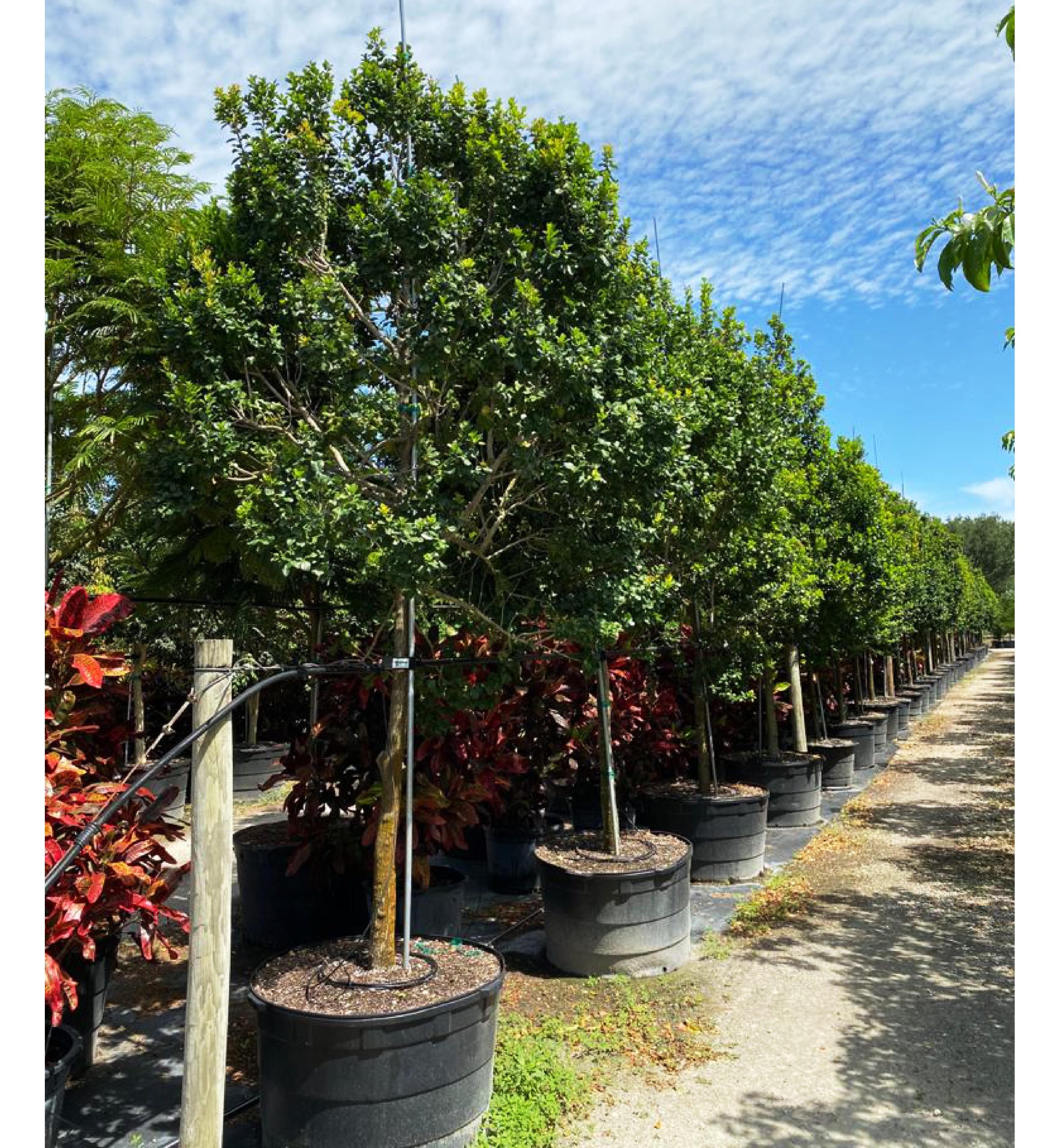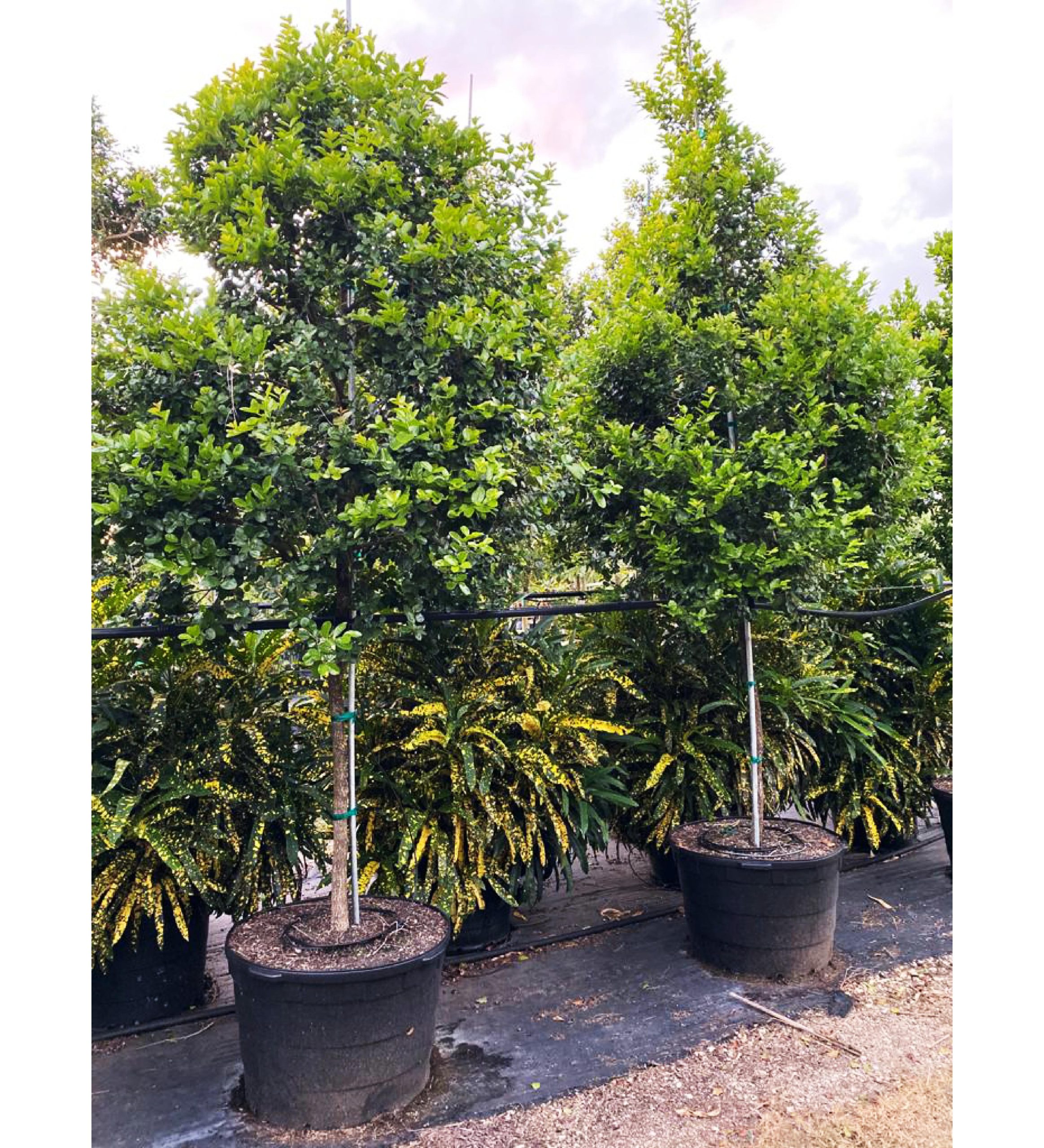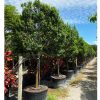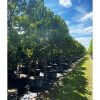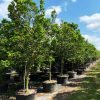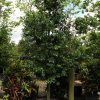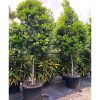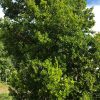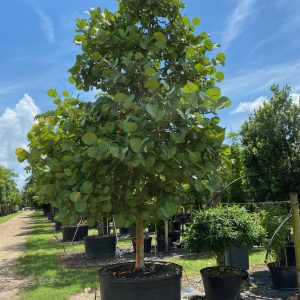Description
Black ironwood tree description
Krugiodendron Ferreum (Black Ironwood) is a small to medium-sized tree with slender branches. It reaches 15 to 25 feet in height, it grows taller than it does wide. Additionally, it has an upright crown of moderate density, with a rounded to narrow pyramidal, often irregular shape. Moreover, the bark is dark gray, rough, and furrowed. While, the leathery leaves are opposite, simple, entire, and oval. The attractive bright glossy green leaves measure 1 to 1.5 inches long with a notch at the apex. And, the unfolding leaves are pinkish. Also, the flowers are small, greenish, star-shaped, without petals, borne in the leaf axils, and inconspicuous.
Furthermore, the fruit is a juicy berry, oval or nearly round. The berry is 1/3 inch long ripening to a purplish red, edible and sweet, attract birds and other animals. The fruit has a single seed, for propagation. The tree’s common name (black ironwood tree) is appropriate since it has the densest wood of any north American tree, the wood is used in making cabinets.
Krugiodendron Ferreum tree cultivation and landscape application
Black ironwood tree grows well in moist, well-drained sandy or limestone soils with a top layer of humus. It grows very slowly, but as it ages its character and structure take over and it becomes a highly noticeable member of any landscape. It is as well a very long lived tree that may be used as a small specimen tree in residential landscapes, as a street tree, or as a large shrub in the background or under full sun around perimeters. Black ironwood is similar to darling plum.



